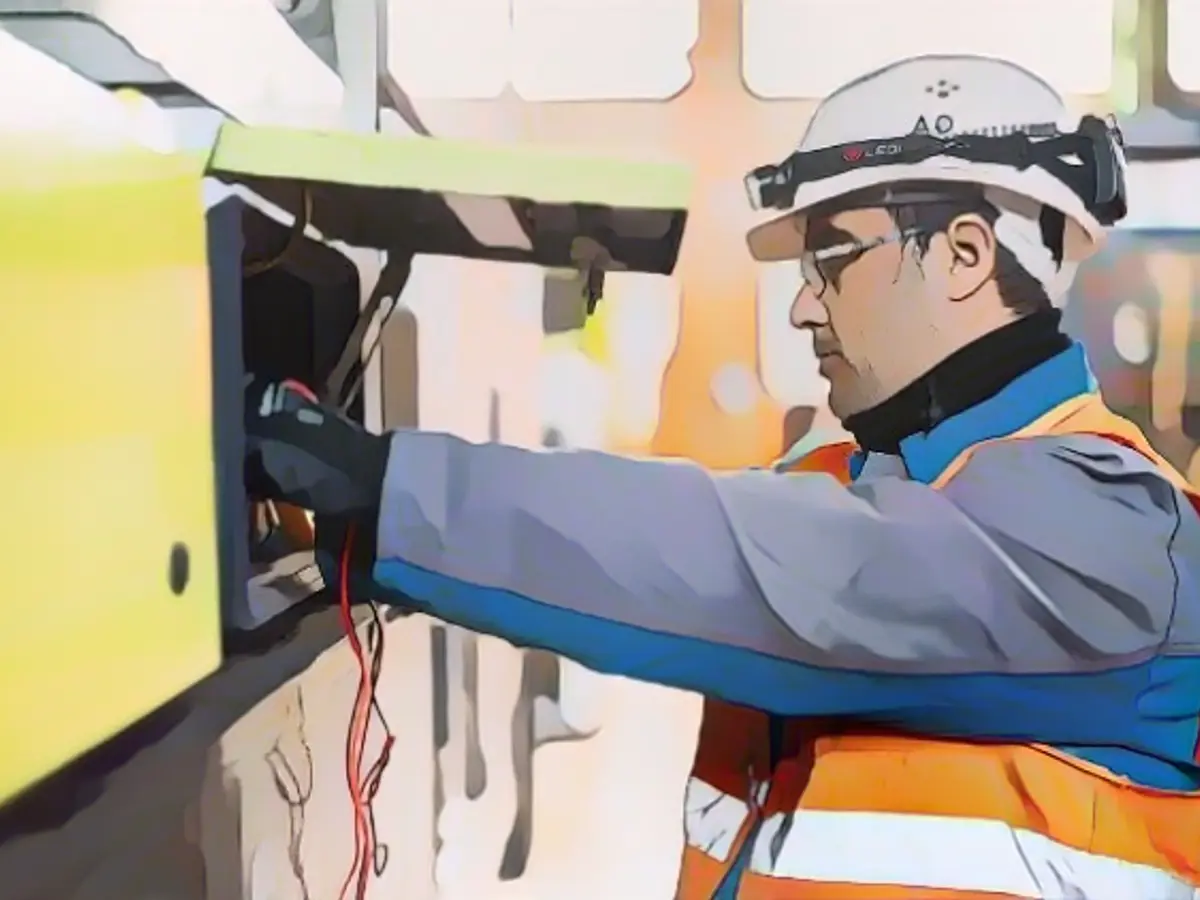These immigration rules apply from Saturday
Germany needs more skilled workers - in almost all sectors. For this reason, more people are to be recruited from abroad. To this end, the German government launched a reform of immigration rules in the summer. The first new measures come into force on Saturday. An overview.
What was decided?
The new law is intended to increase the immigration of people from non-EU countries and thus secure Germany as a business location. The aim is to make it easier and more attractive for qualified workers to take up employment in Germany. The changes affect various areas and are due to come into force by July next year.
Changes to the "Blue Card"
According to the Federal Statistical Office, the so-called Blue Card of the European Union is currently the most common residence permit in the area of temporary employment migration in Germany. It is aimed in particular at academics from non-EU countries and enables a faster permanent settlement permit for employees and facilitates family reunification.
Interested parties must present a concrete job offer when applying. From Saturday, the minimum salary stipulated for this will fall from 58,400 euros to 43,800 euros. For professions with a particularly urgent need for skilled workers, so-called shortage occupations, the lower limit will then be 39,680 euros.
In addition, the list of shortage occupations will be expanded to include, for example, construction managers and teachers. This will allow more applicants to enter Germany via the Blue Card, according to the Federal Employment Agency (BA).
Change of sector will be made possible
Until now, the profession taken up in Germany had to correspond one-to-one with the vocational training or course of study. This will be relaxed from Saturday. Trained bakers will then also be able to work in the kitchen of a catering business, while logistics specialists will be able to work in offices. This opens up new opportunities for applicants and companies, explains the BA. Exceptions already apply to regulated professions, such as medicine or law.
Opportunity card and points system
With the opportunity card, people from non-EU countries have the opportunity to enter Germany without having to present a permanent employment contract. "This allows applicants to work in Germany without a lengthy recognition procedure," says the make-it-in-germany website. However, there are some requirements: applicants must meet basic requirements such as a basic knowledge of German or very good English and at least two years of vocational training or a university degree recognized in their country of origin.
Additional points are awarded, for example, for partial recognition of a foreign professional qualification or for permission to practice a regulated profession, for years of professional experience in the trained profession or for better German language skills. If you receive a total of six points, you will receive an opportunity card and may stay in Germany for one year to look for work - provided you are able to support yourself. An extension of the Chancenkarte for up to two further years is possible under strict conditions. The new offer will be available from spring next year.
Western Balkans regulation to be extended
The so-called Western Balkans regulation is intended to facilitate access to the German labor market for people from Albania, Bosnia and Herzegovina, Kosovo, North Macedonia, Montenegro and Serbia. It was originally set to expire at the end of 2023, but this deadline was removed as part of the reform. From June 2024, the quotas for workers from these countries are also to be increased from 25,000 to 50,000. "Workers from the Western Balkans have been contributing more and more to employment in Germany for years," says the BA. The numbers have risen steadily since 2016.
The federal employment agency expects more applicants to enter Germany via the Blue Card due to the expansion of shortage occupations, aiming to address the skills shortage in Germany. The new immigration rules, starting this Saturday, aim to make Germany an attractive business location by easing the process for skilled workers from non-EU countries to seek employment in the country, as part of the German government's immigration rule reform within the EU framework.
Source: www.ntv.de








